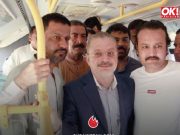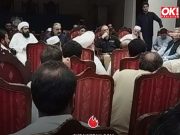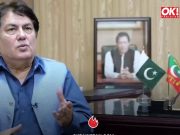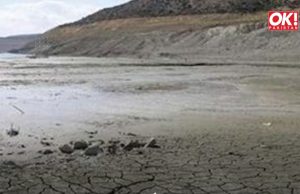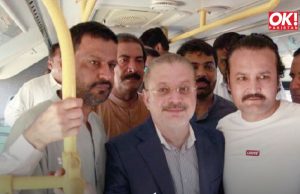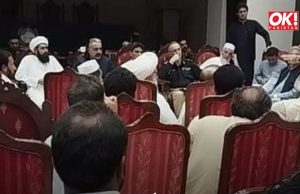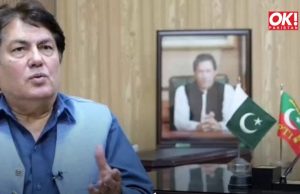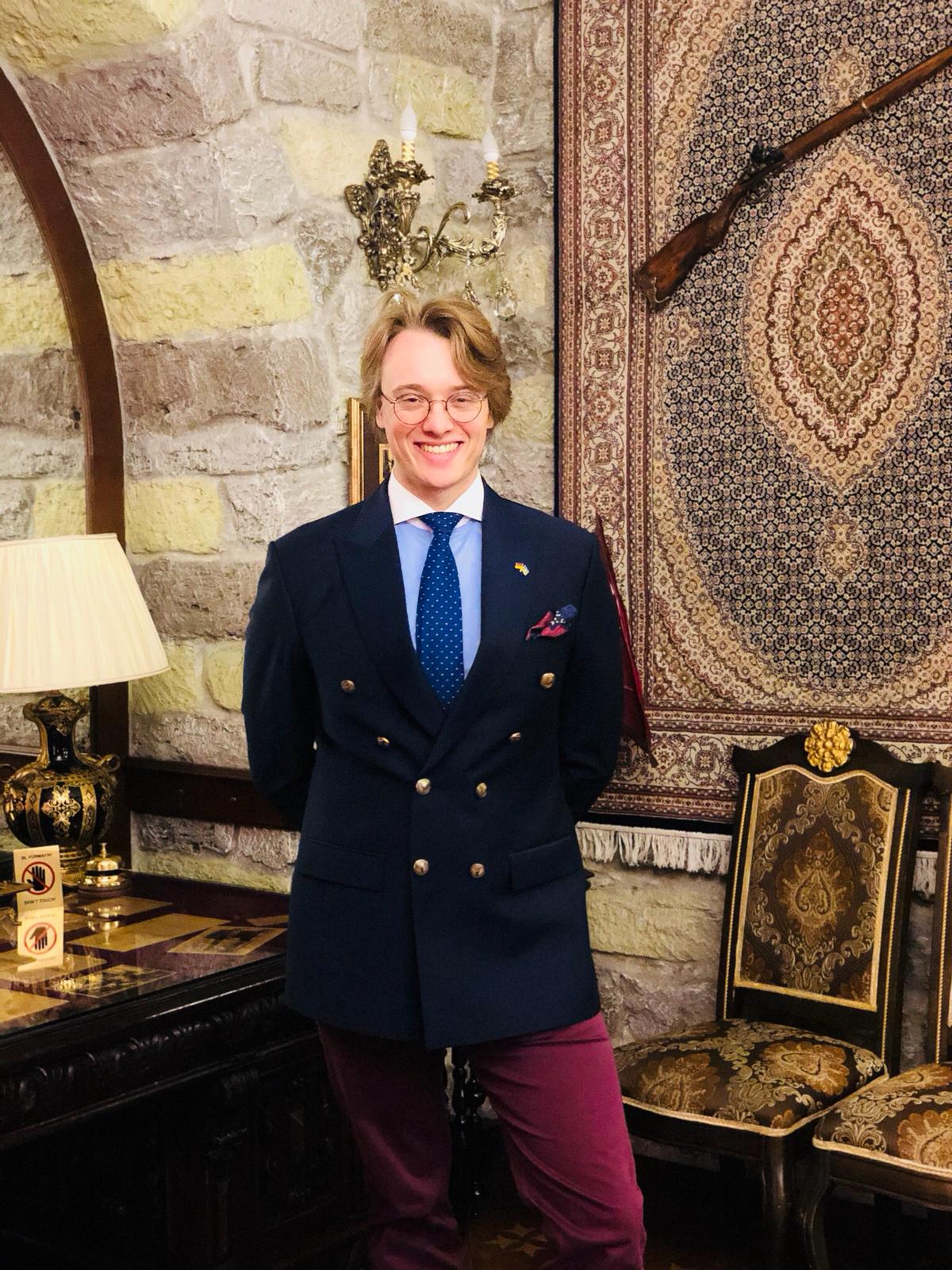 Dr Markus Markert, Entrepreneur, Co-Founder of Anglo-German Education, and Oxford DPhil, is interviewed by OK! Pakistan on his love for the nation and how he seeks to revolutionise the education sector.
Dr Markus Markert, Entrepreneur, Co-Founder of Anglo-German Education, and Oxford DPhil, is interviewed by OK! Pakistan on his love for the nation and how he seeks to revolutionise the education sector.
How did you develop your interest in Pakistan?
Markus Markert: I first came to the land of the pure in a purely academic capacity back when I was still at Warwick University. During my second year, I was invited by a dear friend from Rawalpindi to carry out the fieldwork for a research project on the ground here in Pakistan. Incidentally, he also very kindly invited me to attend his sister’s wedding where I made a terrible fool of myself shaking a leg to “Tu Mera Hero” on the dance floor. Naturally, everyone enjoyed watching the white man dancing and I kept getting invites to come to Pakistan! I think at some point I had built a reputation as some sort of German “wedding junkie” who would only come during “the season”. By now, I must have attended over 100 weddings in Islamabad alone. One thing I can say with confidence is that compared to your weddings, ours look and sound more like funerals!
But don’t forget: I was actually writing a variety of papers during my stay. When I eventually got into Oxford, my MPhil and DPhil supervisor, Professor Jan Zielonka, actually told me that my very unusual – unusual for a German Gora – interest in Pakistan in fact constituted what he called “the extra ingredient”, which got me over the finish line. This is also what I tell my students: everyone can have good grades – you have to build an impressive extracurricular portfolio if you want to stand out from the crowd!
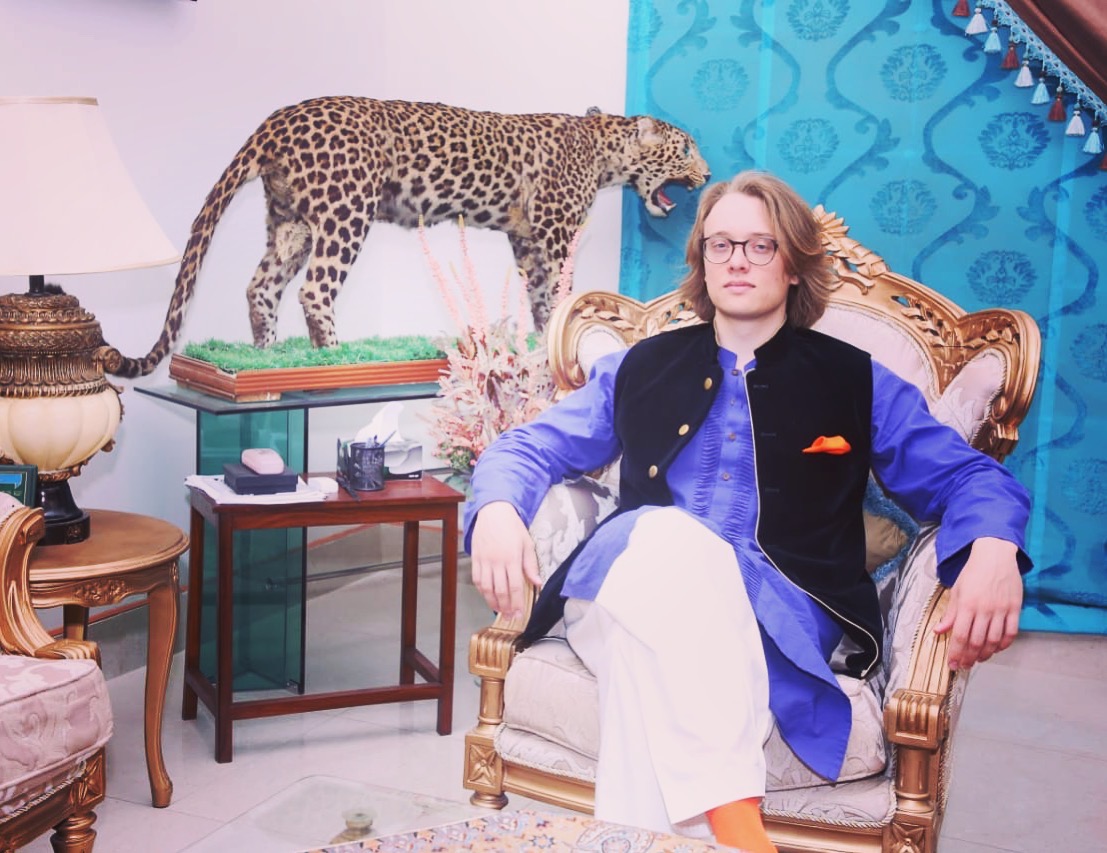 But your engagement with Pakistan did not stop there, did it?
But your engagement with Pakistan did not stop there, did it?
MM: No, not at all! How could it ever stop? Deko: You can leave Pakistan but Pakistan never leaves you. It’s a most lovely and endearing case of Stockholm syndrome for me. My MPhil thesis was again focused on Pakistan and I am also proud to say that I was elected as the first Gora treasurer of the Oxford Pakistan Society. I had the honour and the privilege to serve as the Second in Command to the President of the society at the time, a very close friend of mine and even greater role model. As you know, we Germans work extremely well in hierarchies and love to execute orders – so that role came natural to me!
In our respective roles, we were using the great reputation and convening power of Oxford to build sustainable institutional linkages between the university and different stakeholders in Pakistan. That was a phenomenal learning process for me and also elevated my involvement in Pakistan beyond the “mere” academic level.
After my MPhil and before I commenced my DPhil studies a year later, I decided to move to Pakistan for a year and to work for a private British school system in Rawalpindi and Islamabad. A most enriching experience, which also allowed me to travel widely. Sadly, I have not yet made it to the Northern areas!
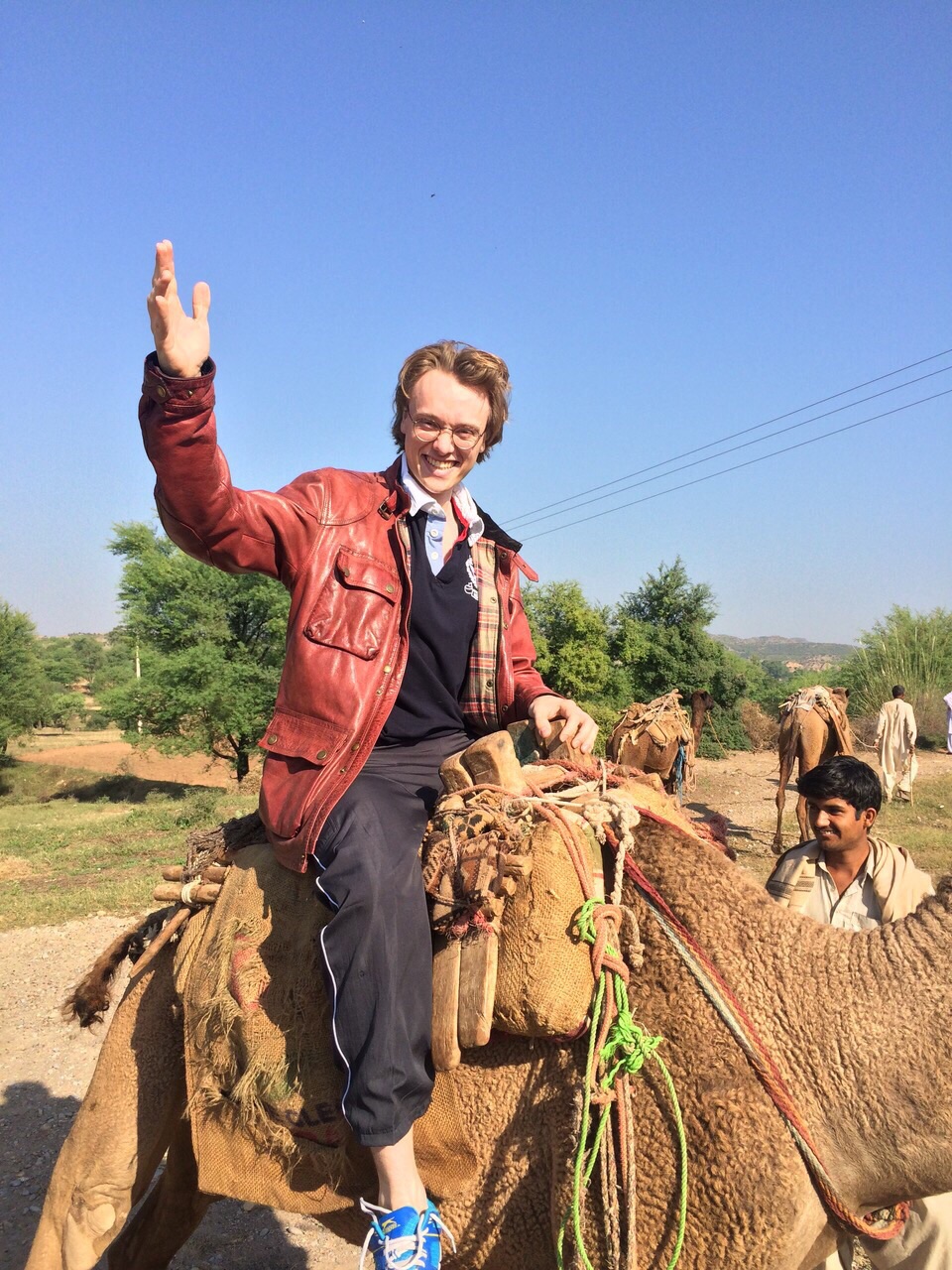 Where in Pakistan have you been?
Where in Pakistan have you been?
MM: I have been all over the place! Sometimes not intentional though! Once, I was persuaded to take the GT road from Islamabad to Lahore instead of the highway. I have forgotten the number of near-death experiences I had during that hellish ride but I definitely agreed with Winston Churchill who once famously said: “Although prepared for martyrdom, I prefer that it be postponed”.
Another time, that was during my very first trip to Pakistan, one of the wedding functions was supposed to take place in Rahimyarkhan and my hosts persuaded me to postpone my flight for a few days and fly south with them. The original plan was to attend the wedding function on the Friday, fly back to Islamabad on Saturday morning, and comfortably get on that flight back to London on Sunday at 03:00 AM. Well, you know the old joke: “how do you make God laugh? You make a plan!”. So, on Friday evening, this chap walks up to me and says: “Sir, there are no flights!”. I could not believe it! Flights can be postponed but how can they possibly be cancelled? The next day, I ended up driving all the way for 12 hours from Rahimyarkhan to Islamabad! I probably saw more of the Punjab than most Pakistanis! Luckily, I made it and when I told the stewardess about my odyssey, she gave me a Toblerone for free!
Based on what you have seen and experienced during all those years, what are the defining features of Pakistan in your eyes?
MM: Well, initially I did feel a bit overwhelmed. Remember: I am a proud son of Hanover, a city in northern Germany, perhaps known only for having supplied England with her kings. Everyday life is quiet and orderly as one would expect from any ordinary German city. Can you imagine: I was once stopped by the police for crossing a red traffic light at night with my bicycle and was “sentenced” to pay 60 Euros for the crossing itself and 300 Euros to attend a seminar that would help me to improve my behaviour in traffic. Lenin, the Russian revolutionary, best captured this very essence of my people when he observed that it would be impossible to start a revolution in Germany: “If we were to tell the Germans to occupy a train station, they would all purchase their tickets first”!
But once one can see past that first “clash of cultures”, which is in fact a lovely one and, mind you, a good sort of shake up for us Goras, one realises what makes the land of the pure so unique amongst the nations of the world! If I had to capture this in two defining features, I would say that the first is your refusal to succumb to history’s horrors. Just look at what has been thrown at you and you are still standing! Weaker nations would have cracked already. The second feature is that this is a country with extremely talented people, who, I am afraid, for the most part, are not given the opportunity that they deserve. I have been all over this country. From Karachi to Swat valley. You can enter a village and see how a simple plastic bottle has been put to use in fifteen different ways! The human genius in this country is simply enormous!
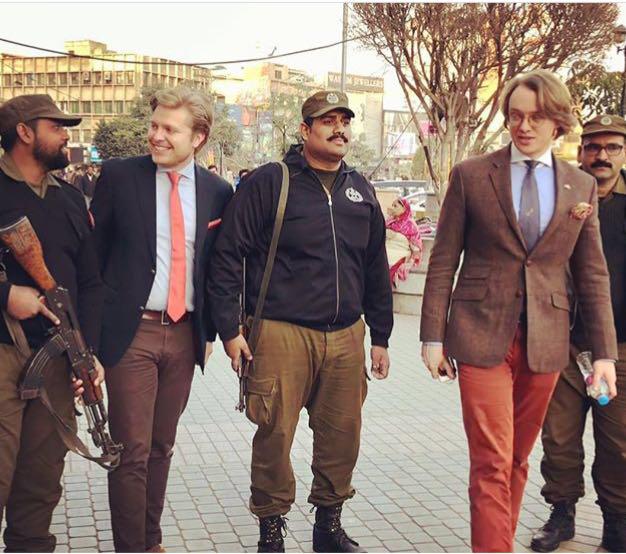 So how do we give opportunity to that genius?
So how do we give opportunity to that genius?
MM: You see, there have been so many initiatives focused on giving people an education. But where are these kids? What has become of them? We never see them! One of my great mentors, Asif Rangoonwala, once perfectly summed up this dilemma when he observed that “Pakistanis spend between $1 to $2 billion a year in charity; it’s a huge number. But they are not creating the institutions – that shows you what a big cash economy you have. It’s a question of creating systems, ending ad hocism and introducing structured systems“ – and I could not agree more with Asif Sahib. As a German, I firmly believe that the missing link in a lot of educational projects is the long-term, systematic involvement of industry. Deko: It’s all fair and games to help a student get through school or obtain a higher education degree. But then what? In the worst case, a lot of these youngsters end up being unemployed or drive Ubers with a university degree.
My calling and mission – both as an entrepreneur but also as someone who holds Pakistan very, very dear – is to work with schools, universities, and, crucially, Pakistani industry to develop an education similar to the German system of Applied Sciences.
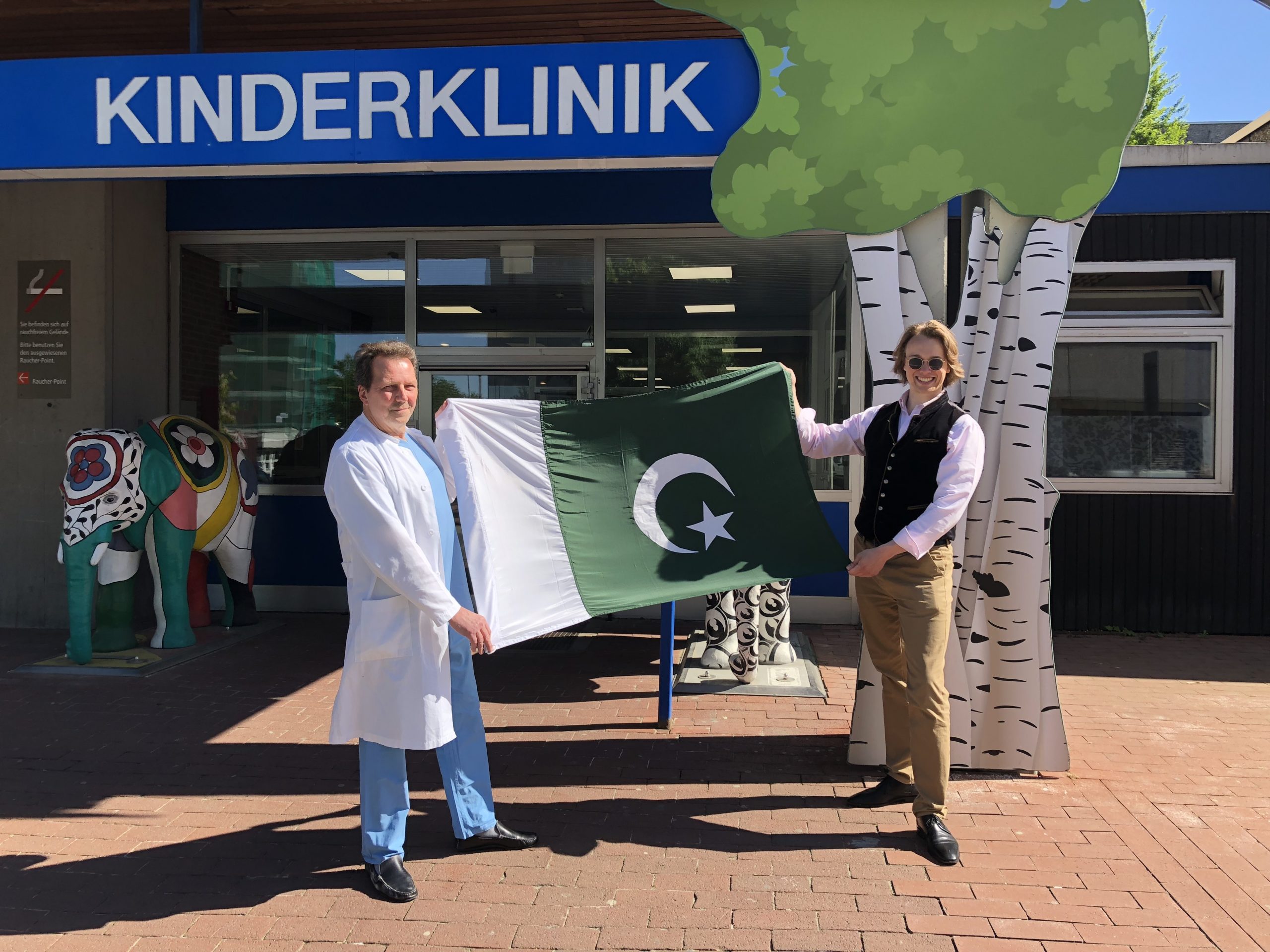 How does this Applied Science System work?
How does this Applied Science System work?
MM: Essentially, it is a practice-oriented study mode in which universities work closely with local industry partners and thereby develop a highly skilled workforce. The students are required to work during their studies. They will get paid for this but they have to do it. Also, the professors teaching them are usually businessmen and industrialists themselves. The entire focus is on work experience and practice as opposed to the research and theory focus we see in “traditional universities”.
Our company has started working with reputable industries, schools, as well as local and international universities on a few pilots in Karachi that seek to slowly but surely change the way we “do education” towards an applied science model. This is now becoming a more and more popular trend worldwide – beyond Germany. Her Majesty’s Government introduced a similar system in 2020 called “T-Levels”. In fact, one of our university partners in the UK, the University of Law has recently changed its curriculum and made industry placements mandatory in a number of courses.
And it makes sense, does it not? As an accountant in Pakistan you cannot get your degree until and unless you have worked for a certain period of time. Why does this not apply to all other subjects? From engineering to media studies or architecture! We do not want our students to only start interacting with the labour market and employers after they graduate. We want them to gain that practical experience during their studies!
I firmly believe that this is the way forward for Pakistan and we are blessed to have the top industries of this country supporting us. Industry is the key, indispensable element in all of this! Only long-term industry collaboration with schools and universities in this country can help to build a system that will produce the skilled labour that we need. I mean, I am just astonished by the fact that Pakistanis have been assembling generators for other countries for decades but cannot build their own! Instead, precious US dollars and Euros are spent on importing these goods from abroad. Similarly, whenever, say, a particular machine in a factory is broken, the Pakistani industrialists have to hire some Gora to fly in and fix it for them.
But again, risking to repeating myself like a parrot: if we endeavour to develop the skillset we need, we have to have students work for industries as part of their studies. Only through this will they develop the practical skills they, the industry, and the country as a whole need. We have launched a number of initiatives at the high-school, the undergraduate, and the postgraduate level to – inshallah – make this a reality!
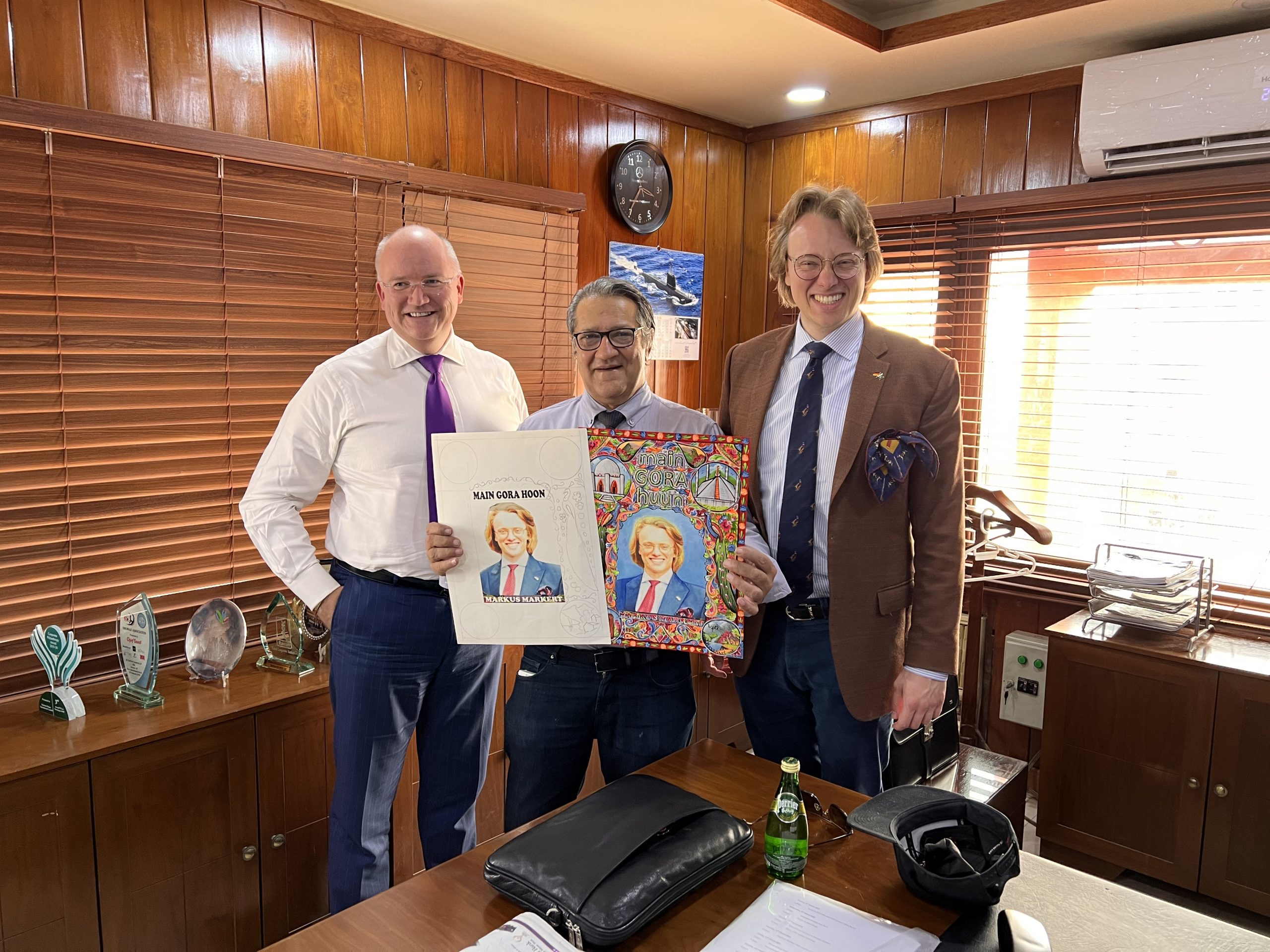 Germany itself is becoming a more and more popular study destinations for Pakistani students. What can they expect and what are the benefits for them?
Germany itself is becoming a more and more popular study destinations for Pakistani students. What can they expect and what are the benefits for them?
MM: You are right: we have been a known unknown. People knew that the German education system is good but given the traditional orientation towards the Anglo-American system in this country, no one knew quite what to make of it. This is changing now: Germany is becoming more and more popular and this trend has become particularly apparent in the increase of international students at applied sciences universities where they are able to work and study at the same time.
What is more, Germany right now is facing a severe shortage of skilled labour. We are in dire needs of bright and qualified minds who can join the labour market and economy and ensure that „made in Germany“ retains its old respected fame throughout the world. There have been new regulations facilitating this, such as the skilled labour immigration act. This allows students who have graduated with a German degree residency for up to 18 months to find a job. After that they would become permanent residents. Around 96% of those studying at the universities we are working with have found a job within 12 months and around half of them hold a job offer before they graduate.
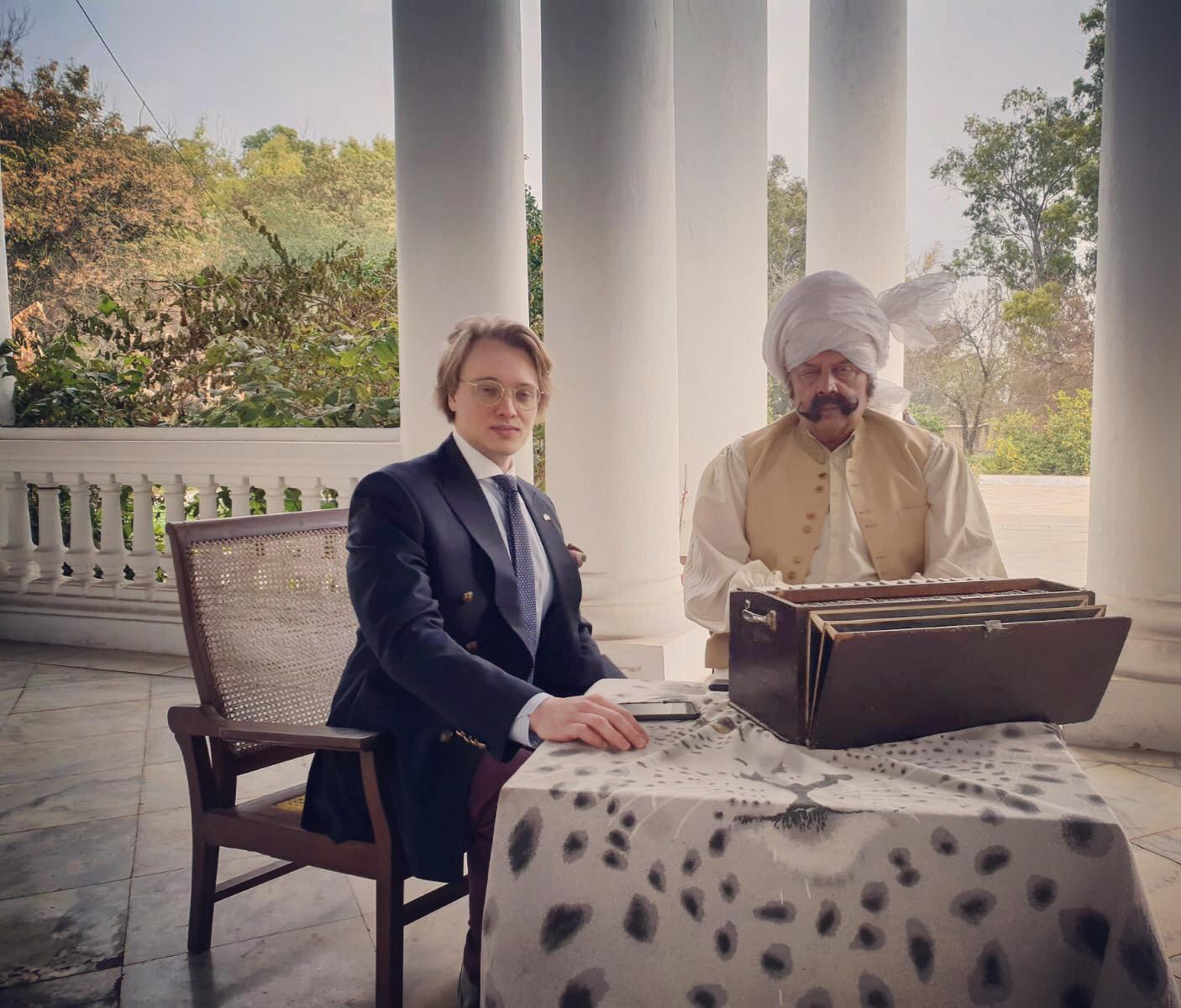 Another myth here in Pakistan is that you have to speak German in order to study in Germany. This is not true. At the universities we are working with you can complete both your undergraduate and postgraduate degrees in English and get a German degree. For most undergraduate courses at state universities, however, you do have to have command over the Teutonic tongue but we can help you with this as well.
Another myth here in Pakistan is that you have to speak German in order to study in Germany. This is not true. At the universities we are working with you can complete both your undergraduate and postgraduate degrees in English and get a German degree. For most undergraduate courses at state universities, however, you do have to have command over the Teutonic tongue but we can help you with this as well.
OK! Pakistan: Dr Markus, we wish you all the success in all of these great initiatives!
![]()




